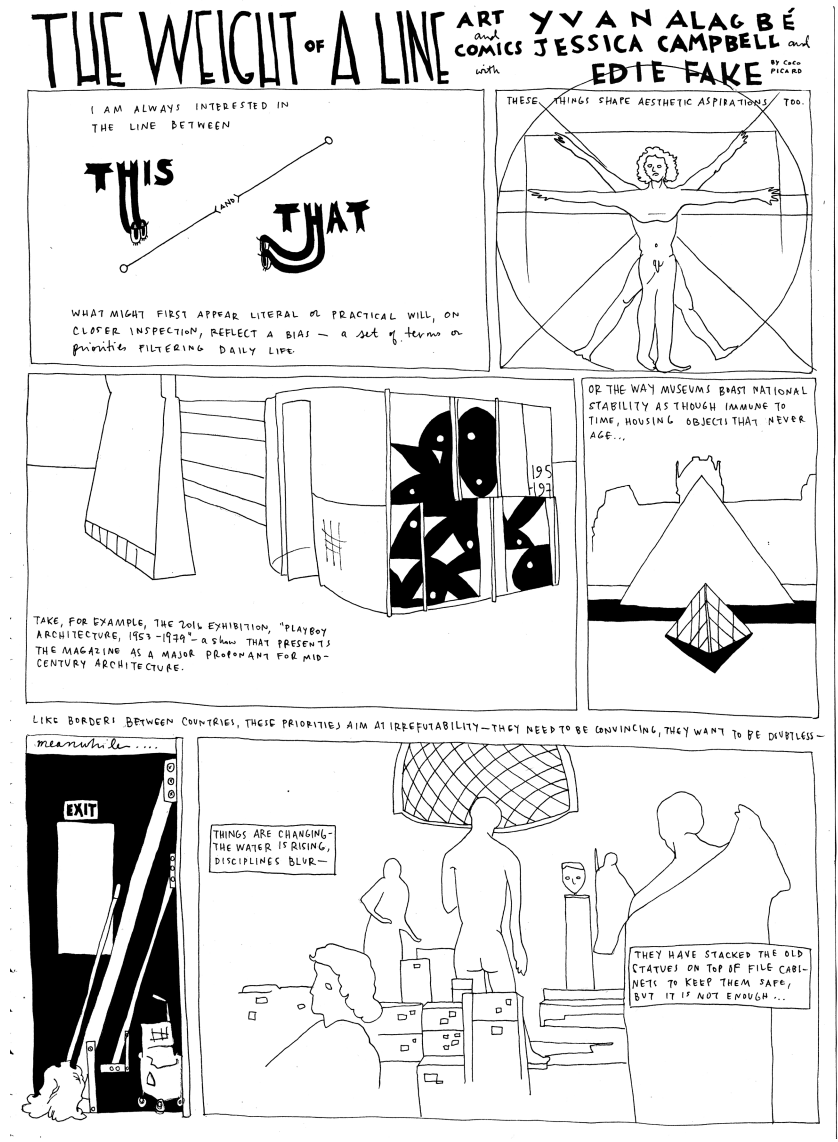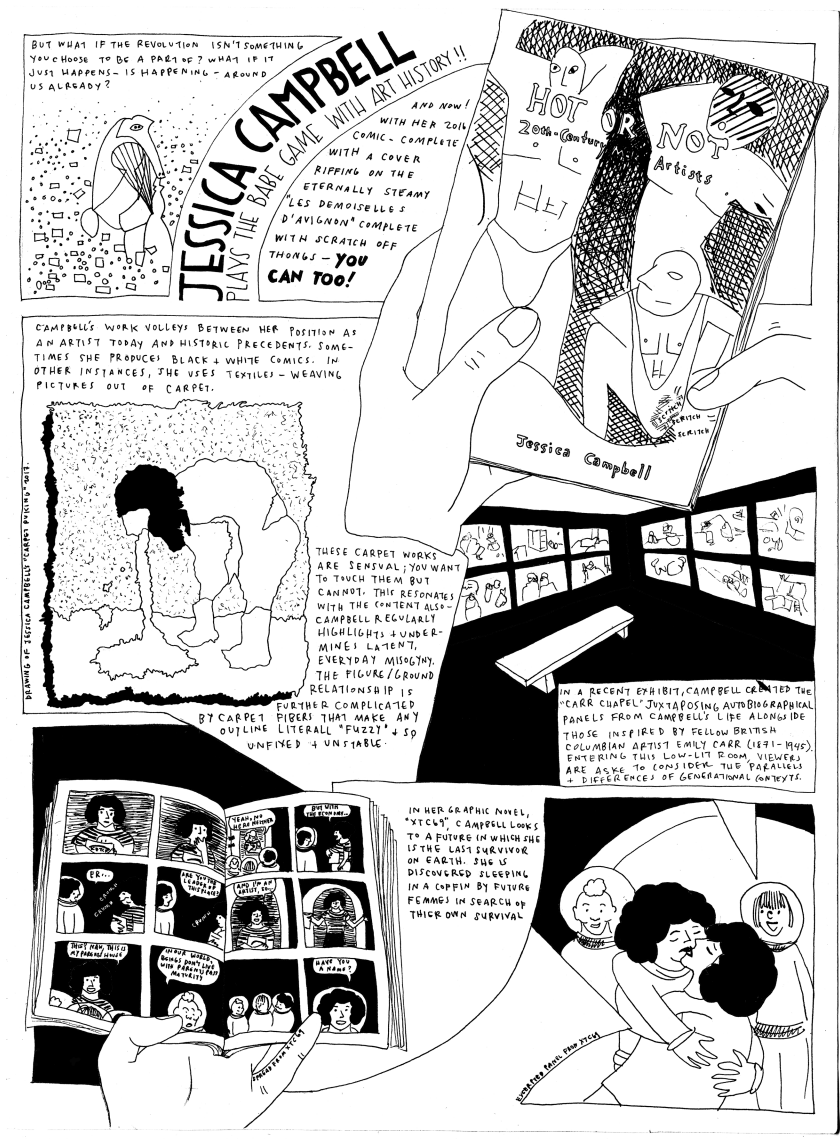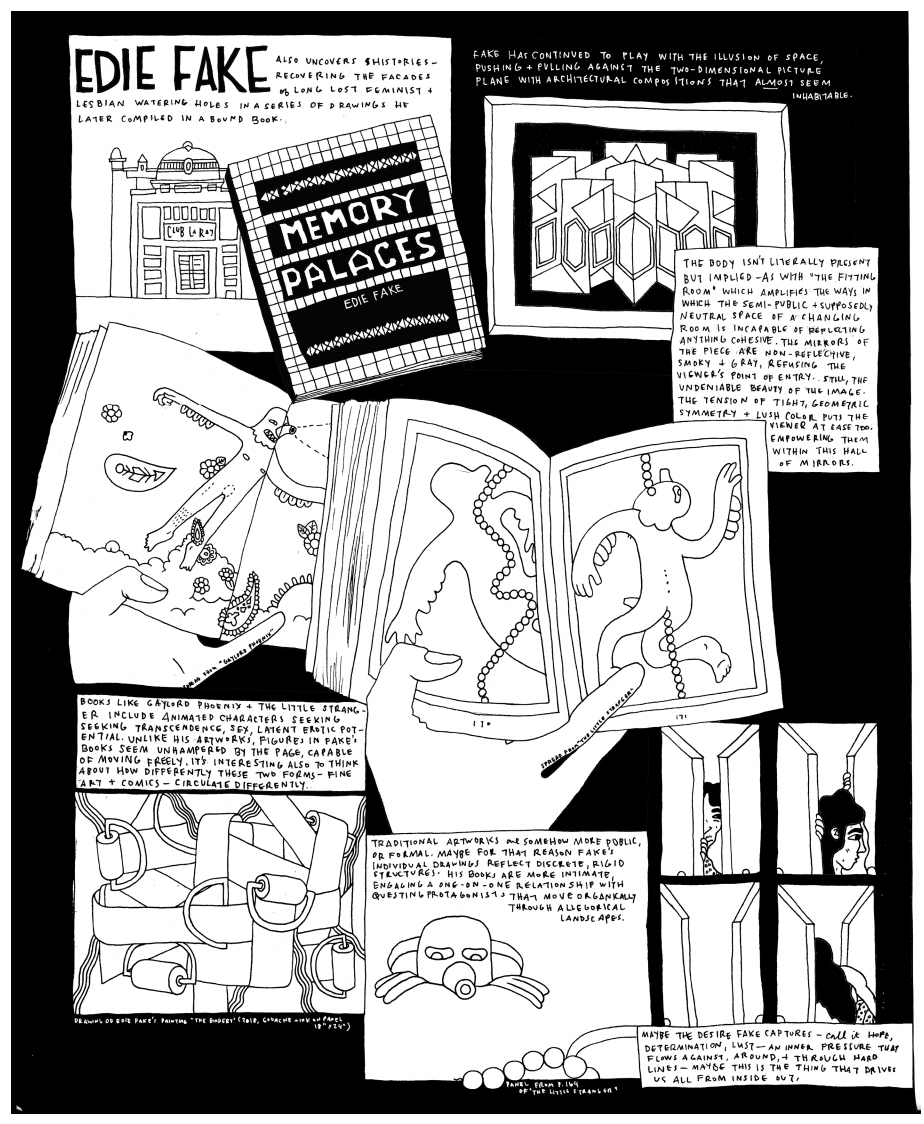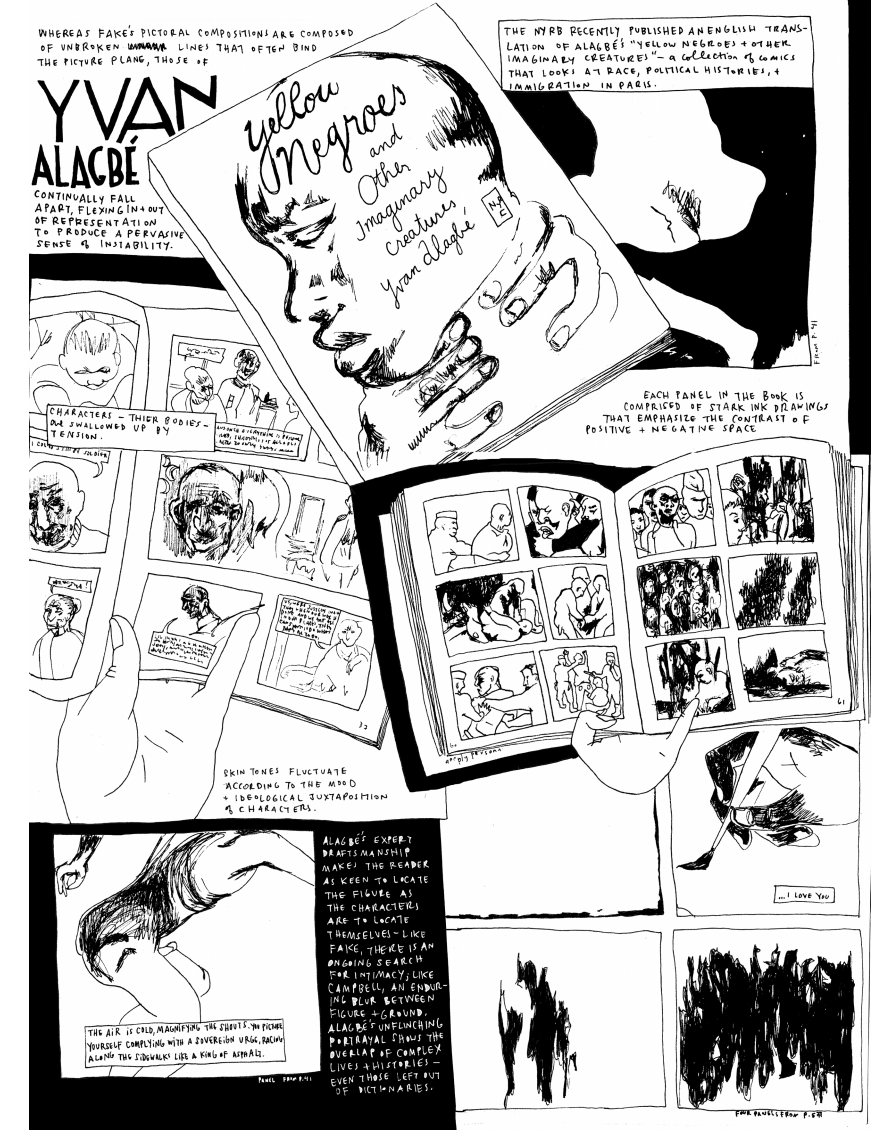The Weight of a Line: The Art and Comics of Yvan Alagbé, Jessica Campbell, and Edie Fake




The following comic was originally published by The Seen in April, 2019.
An age-old mode of artistic research involves bringing a sketchbook to a museum and sketching a painting or drawing in order to understand its operations. Such efforts can yield different insights at different times. The following graphic review follows a similarly intuitive but careful endeavor, looking at three contemporary comic book artists, Yvan Alagbé, Jessica Campbell, and Edie Fake, who also engage the field of contemporary art. Each artist interrogates their own political concerns from sexual politics to gender identity, racial identity, and forgotten histories, using unique markmaking and material strategies that resonate conceptually with the emotive and political landscapes they engage. As a result they capture something of our moment: a deep frustration for society’s habits, a frustration that nevertheless unearths new forms of potential.
In addition to his own accomplishments as a cartoonist, Yvan Alagbé (b. 1971, Paris) spearheads multiple publishing efforts, including a contemporary art review he cofounded, L’oeil carnivore, a magazine, Le Chéval sans tête, and a comics publishing house, Amok. In 2001, Amok partnered with the publishing group Fréon to establish the Franco-Belgian collaboration Frémok, now a major European graphic novels publisher. Alagbé’s graphic novel, Yellow Negroes and Other Imaginary Creatures (New York Review of Books, 2018) was recently translated into English. Jessica Campbell (b. 1985, Victoria, Canada) is an artist and humorist based out of Chicago; she is the author of two graphic novels, XTC69 (Koyama Press, 2018) and Hot or Not: 20th Century Male Artists (Koyama Press, 2016), and, working in performance, fiber, painting, and drawing often uses carpet remnants to create stand-alone, figurative artworks. Edie Fake (b. 1980, Chicagoland) is a painter and graphic novelist who envisions and explores the potential of queer spaces—imagined, personal, and historical. He is the author of two books, Gaylord Phoenix (2011 winner of the Ignatz Award, Secret Acres), and Little Stranger (Secret Acres, 2018).
Just as typeset critics must internalize and reflect the work of a given artist or author in their writing, this review aims to explore a parallel effort through drawing and handwritten text—creating a graphic reflection of the artists’ work. Bear in mind that each drawing of an artwork or comic panel is a failed copy of the original, a copy that has been translated through the hand of the author.